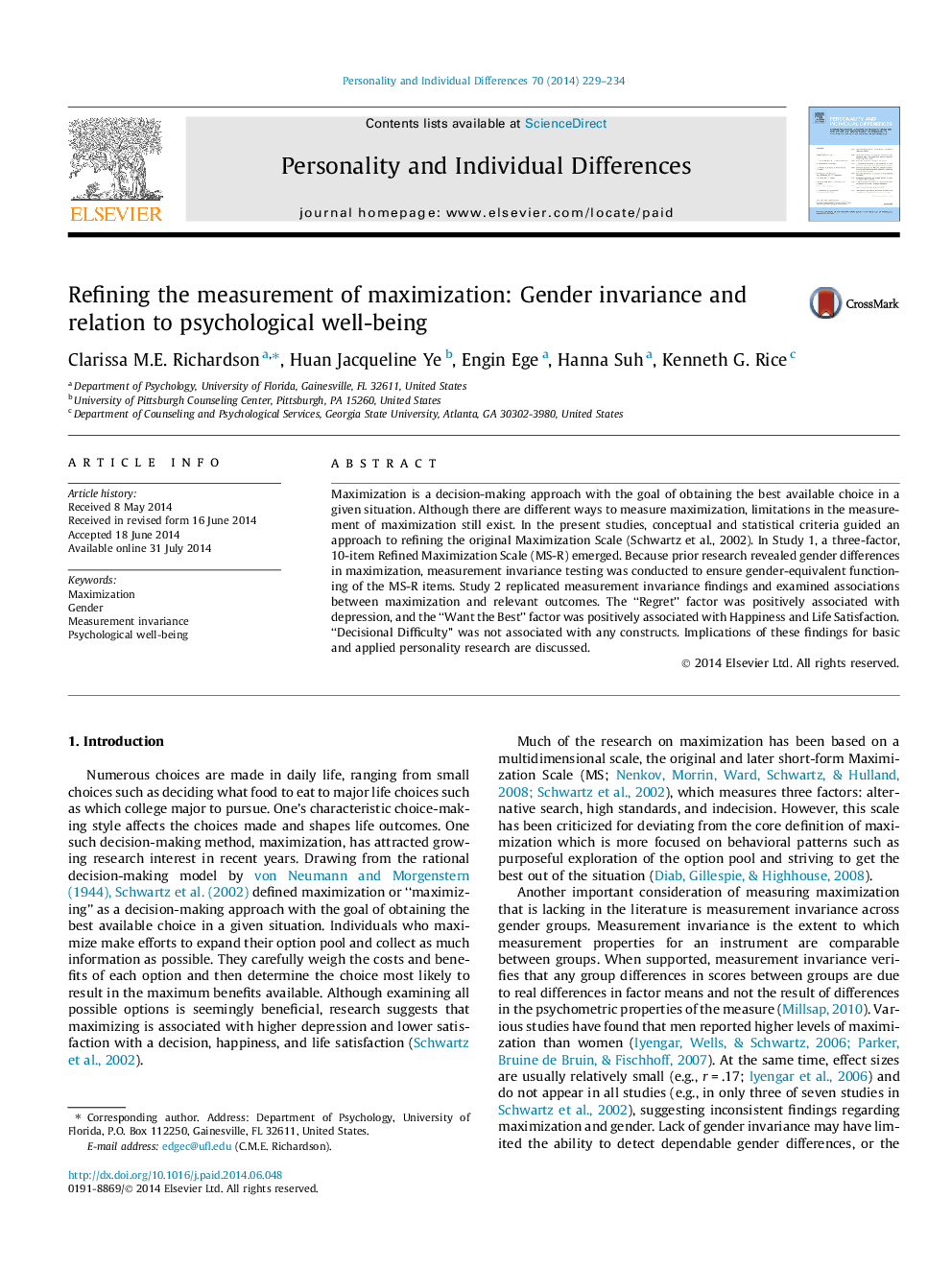| Article ID | Journal | Published Year | Pages | File Type |
|---|---|---|---|---|
| 890344 | Personality and Individual Differences | 2014 | 6 Pages |
•We refine the original Maximization Scale (Schwartz et al., 2002).•A three-factor, 10-item Refined Maximization Scale (MS-R) emerged.•Gender invariance was tested, and metric invariance is supported.•The “Regret” factor is negatively associated with well-being indicators.•The “Want the Best” factor is positively associated with well-being indicators.
Maximization is a decision-making approach with the goal of obtaining the best available choice in a given situation. Although there are different ways to measure maximization, limitations in the measurement of maximization still exist. In the present studies, conceptual and statistical criteria guided an approach to refining the original Maximization Scale (Schwartz et al., 2002). In Study 1, a three-factor, 10-item Refined Maximization Scale (MS-R) emerged. Because prior research revealed gender differences in maximization, measurement invariance testing was conducted to ensure gender-equivalent functioning of the MS-R items. Study 2 replicated measurement invariance findings and examined associations between maximization and relevant outcomes. The “Regret” factor was positively associated with depression, and the “Want the Best” factor was positively associated with Happiness and Life Satisfaction. “Decisional Difficulty” was not associated with any constructs. Implications of these findings for basic and applied personality research are discussed.
